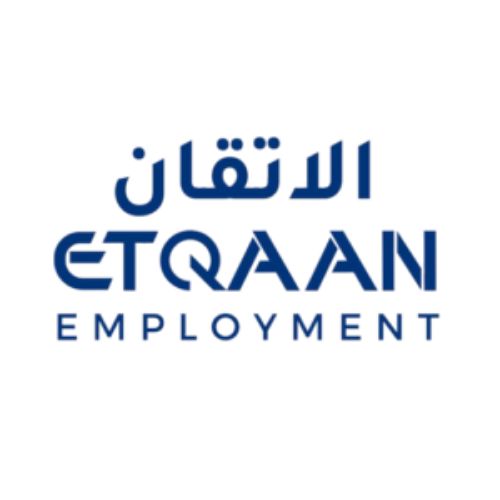
The Pressure is Real: Why ISO 15189 Isn’t Just a Fancy Certificate
You know how healthcare labs get judged by the tiniest margin? That one decimal point on your blood report? That small. Well, ISO 15189 is the international yardstick for medical laboratories. In Malaysia, this isn’t just some regulatory fad – it’s a growing standard that says, “Hey, we’re not cutting corners.”
Whether you’re a private diagnostic center in Klang or a hospital lab in Sabah, there’s a quiet race happening. Everyone wants credibility. Patients, doctors, and yes, regulators – they all want to trust your lab reports. ISO 15189 gives that trust some teeth.
So no, it’s not just a certificate. It’s your lab’s ticket to professional street cred, smoother processes, and yes, fewer sleepless nights when an audit rolls around.
Malaysia, Meet ISO 15189: A Quick Backstory
Back in the early 2000s, Malaysia was already eyeing global recognition for its healthcare sector. Enter ISO 15189 – a standard first published by the International Organization for Standardization to ensure that medical labs could consistently deliver valid results.
In Malaysia, the Department of Standards Malaysia (DSM) took the lead in accrediting labs. And if you’re wondering, no, it’s not a rigid system. Labs still have autonomy – but within a framework that actually makes life easier, not harder.
Over the years, more Malaysian labs have jumped on the bandwagon. It’s like the difference between driving with GPS versus trying to remember directions from that one uncle who always says, “Just go straight lah, you won’t miss it.”
The Nitty-Gritty: What ISO 15189 Really Covers
Let’s get this out of the way – ISO 15189 isn’t just paperwork. Sure, there are documents involved (you didn’t think you’d escape that, did you?), but it’s really about how your lab works from the ground up.
It covers two broad areas: management requirements and technical requirements. Think of it as the brain and the hands. The brain governs policies, staff competency, and communication. The hands deal with equipment calibration, sample handling, and result reporting.
It’s like running a tight ship where the captain actually knows what every crew member is doing – and why. And more importantly, patients get results they can rely on. Because one misstep? That could mean the difference between early diagnosis and a missed red flag.
Why Labs Are (Finally) Taking This Seriously in Malaysia
Here’s the thing. Accreditation used to be seen as a luxury. Something only “big boys” like university hospitals or top-tier private labs would bother with. Not anymore.
The Ministry of Health (MOH) has been nudging – okay, strongly encouraging – public and private labs to get accredited. With increased medical tourism and a more health-savvy population, the spotlight’s on accuracy. Nobody wants a lab that guesses.
Plus, ISO 15189 is increasingly tied to licensing and funding. If you’re running a medical lab in Malaysia today and you don’t have your eye on accreditation, you’re basically saying, “We’re cool with being left behind.”
The Real-Life Impact: It’s Not Just For Show
When Lab A in Selangor got ISO 15189 accredited, something interesting happened. Their error rate dropped by 35% within the first year. Why? Because the system forced them to actually look at their processes – and fix what wasn’t working.
Staff started feeling more confident. There were fewer “Oh no, not again” moments with equipment. Clients noticed too. Suddenly, doctors were calling them first because they knew the results would be dependable.
It’s not magic. It’s just a system that works when you commit to it. Like flossing. Annoying at first. Life-changing when it becomes routine.
Okay, So What’s the Process Like?
Ready for a spoiler? It’s not fast. But it is doable. The ISO 15189 accreditation process in Malaysia starts with a self-evaluation. Think of it as a lab selfie – flaws and all. You measure your systems against the standard and figure out where the gaps are.
Then comes documentation. Not just writing down what you think you do, but what you actually do. After that? Internal audits, management reviews, and finally an external assessment by DSM or a recognised body.
Yes, it’s a bit like sitting for SPM all over again. But with fewer hormones and more Excel spreadsheets.
Common Mistakes (Because We All Make Them)
Labs often trip up in three areas:
- Assuming staff know the standards without real training.
- Neglecting document control – which leads to outdated SOPs floating around like expired snacks.
- Skipping internal audits or treating them like box-ticking exercises.
It’s understandable. You’re busy. But without these checks, things slip. And when DSM shows up? You’ll wish you’d paid attention during those pre-assessment meetings.
Pro Tips From Labs Who’ve Been There
Some wisdom from those who’ve walked the ISO 15189 path in Malaysia:
- Start with staff buy-in. If your team sees this as “extra work,” you’re toast.
- Use tech tools. There are plenty of QMS platforms that can streamline documentation and audits.
- Build a culture of quality. Not just one-off efforts during inspection season. Make it part of your daily lab life.
You don’t need to be perfect. You just need to improve consistently. One lab manager said, “We didn’t chase accreditation. We chased improvement. Accreditation followed.”
The Hidden Payoff: Staff Morale, Client Trust, and Beyond
Here’s something you might not expect: morale improves. When people know what they’re doing, why it matters, and that it’s appreciated? They show up differently.
Clients trust you more. Not just because you’ve got the ISO badge, but because they feel the difference in service and accuracy. And let’s be real – word spreads. Especially in Malaysia’s tight-knit healthcare circles.
So no, ISO 15189 isn’t a magic wand. But it’s a damn good filter. It separates labs that want to “get by” from those ready to lead.
Final Thoughts: ISO 15189 in Malaysia Isn’t the Future. It’s the Present.
If you’re running a lab in Malaysia and still wondering whether ISO 15189 in Malaysia is worth the hassle, ask yourself: would you trust a medical report from a place that doesn’t believe in consistent standards?





